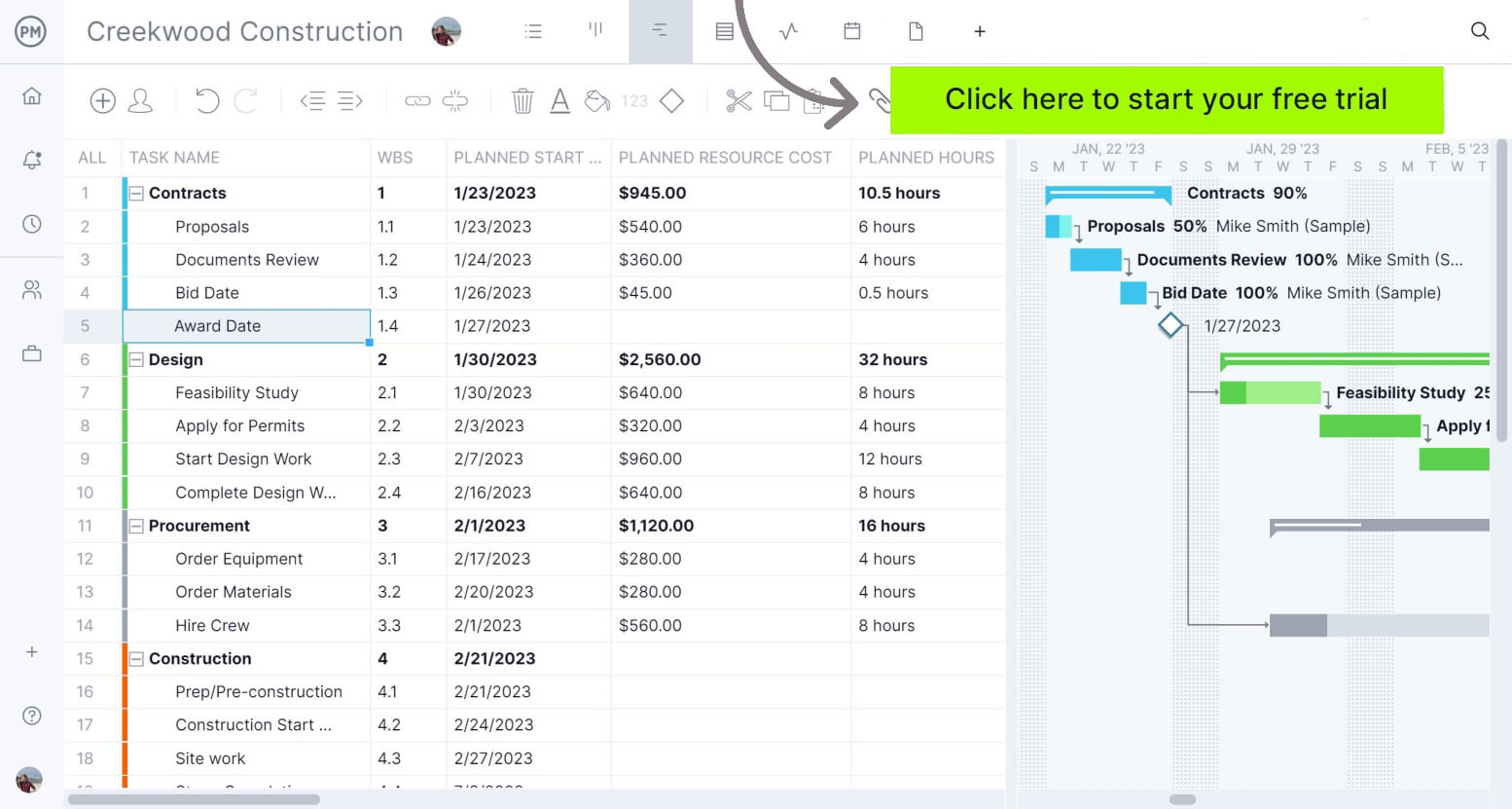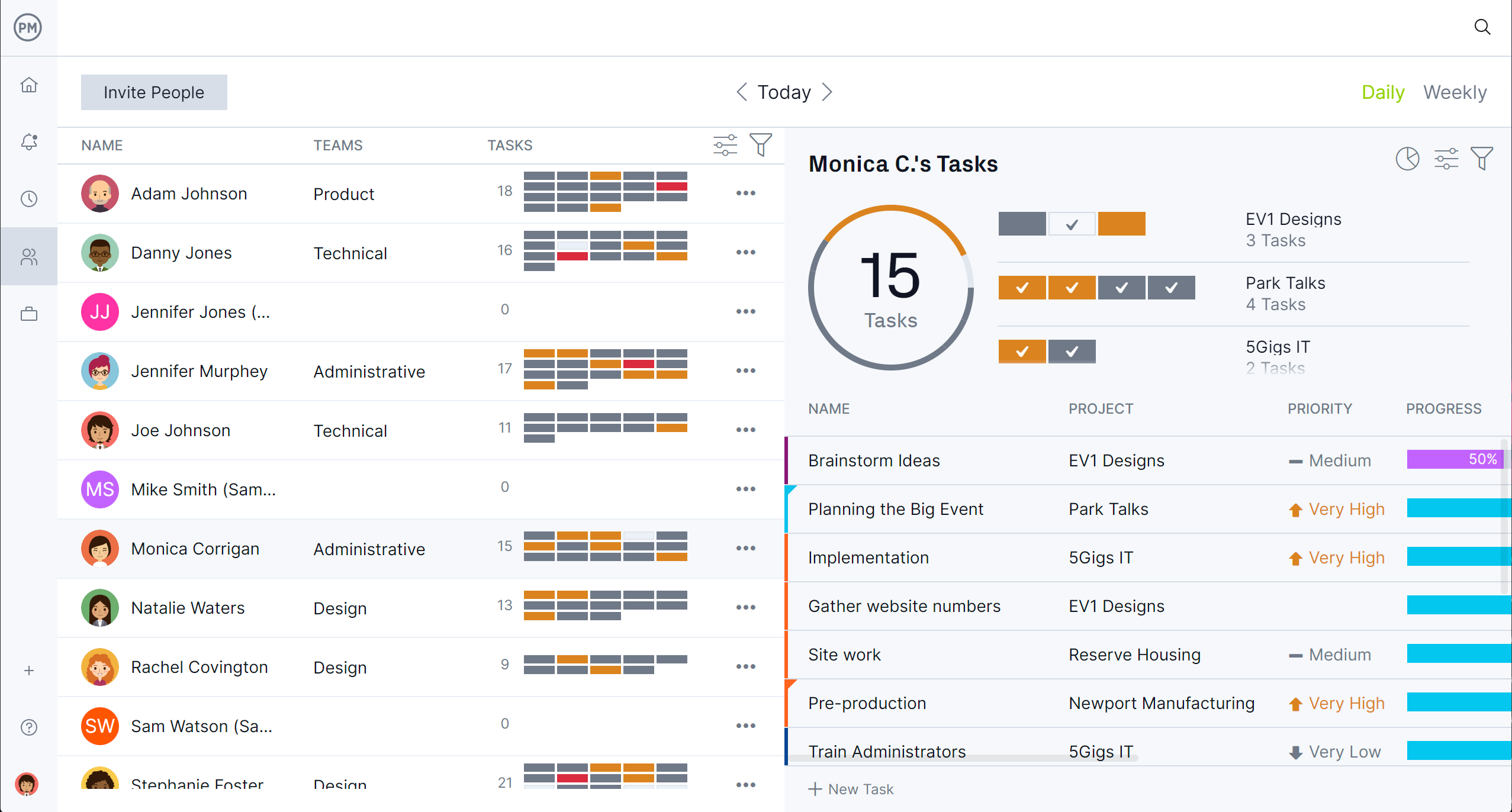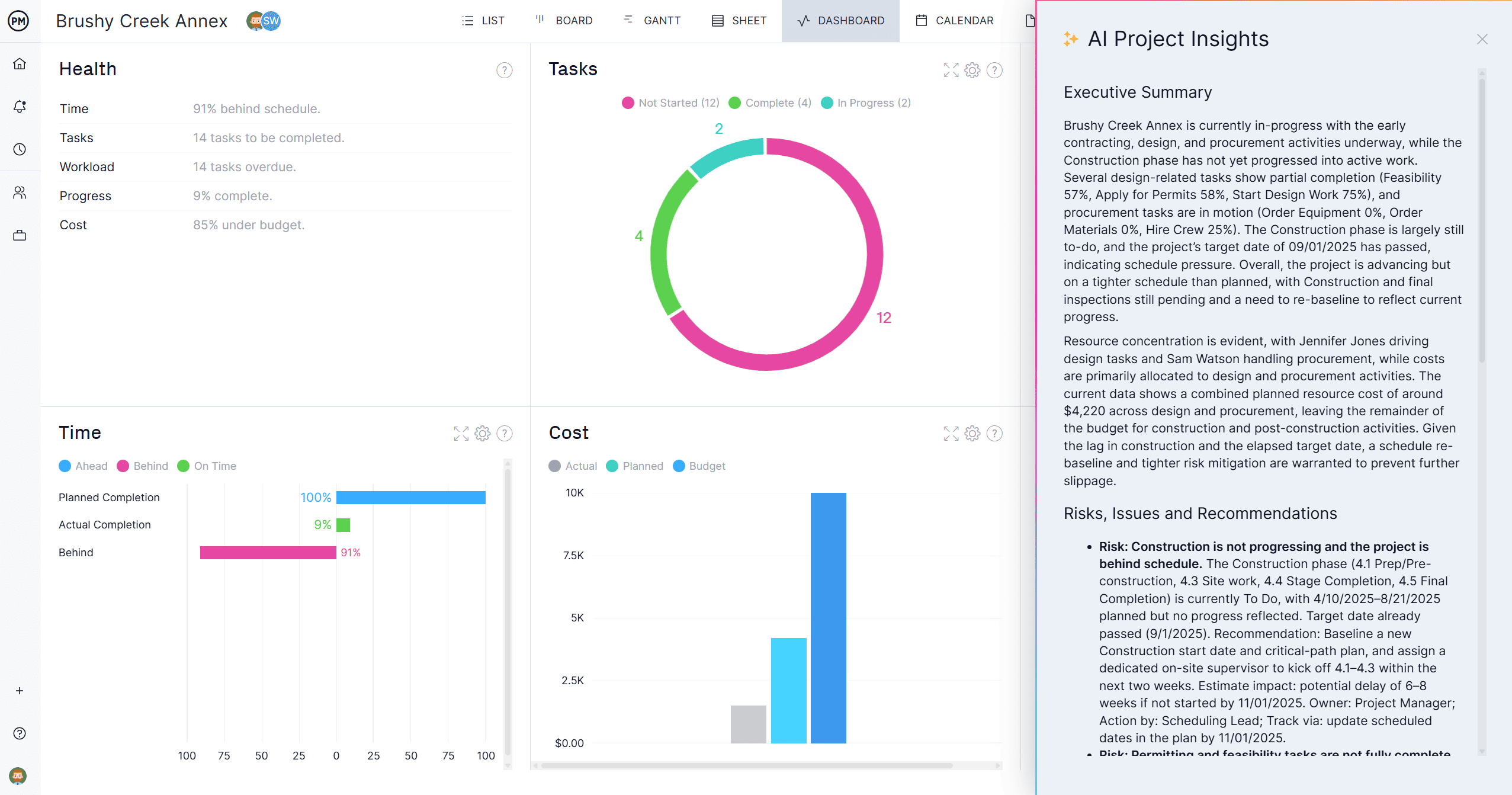Bid management is a vital part of the construction industry, helping contractors and project owners manage competitive bidding and secure profitable projects. An effective bid management process ensures that proposals are accurate, competitive and compliant with client requirements. From tracking bid documents to submitting estimates, a structured system allows construction firms to reduce risk and improve win rates.
Whether you’re managing subcontractor quotes or responding to RFPs, strong bid management practices can save time and enhance profitability. Understanding how to streamline the bid process and adopt modern bid management tools can give your company an edge in a highly competitive market.
What Is Bid Management?
Bid management is the process of organizing, preparing and submitting proposals for construction projects. It involves gathering project requirements, estimating costs, managing documentation and coordinating input from subcontractors and suppliers. The goal is to deliver accurate and compelling bids that align with client expectations and deadlines. Efficient bid management ensures consistent communication and reduces the likelihood of costly errors during preconstruction.
Using project management software to support bid management simplifies collaboration and document control. It allows teams to centralize bid data, manage schedules and track revisions in real time. Automated alerts help teams meet submission deadlines and maintain compliance with bid specifications, improving coordination across departments.
ProjectManager is the best construction project management software for managing bids efficiently. It provides multiple project views, including Gantt charts that link dependencies, filter for the critical path and set a baseline to track progress in real time once a bid becomes a project. There’s also detailed cost tracking and workflow automation to streamline the entire bid management process. Get started with ProjectManager today for free.

Why Is Bid Management Important for Construction Companies?
Bid management is important for construction companies because it improves accuracy, reduces risk and supports stronger decision-making during the preconstruction phase. When teams follow a structured bid management process, they can evaluate requirements carefully, prepare realistic cost estimates and compare subcontractor quotes with greater confidence. This leads to more competitive proposals and higher win rates. Good bid management also reduces delays, improves coordination across departments and helps companies protect profit margins on every potential project.
What Is a Bid Manager?
A bid manager is the person responsible for coordinating, preparing and delivering construction project proposals. This role oversees the entire bid management process, ensuring that each bid meets client requirements, reflects accurate pricing and aligns with company goals. A bid manager helps teams stay organized and ensures that bids are submitted on time.
What Does a Bid Manager Do?
A bid manager reviews project requirements, collects input from estimators, engineers and subcontractors and organizes all documentation needed for a complete proposal. This role evaluates risks, verifies compliance with bid specifications and prepares the final submission package. A bid manager also manages timelines, tracks revisions and communicates updates to internal teams and external partners. Their work ensures that every proposal is accurate, competitive and delivered before the deadline.

Bid Management Process
The bid management process helps construction companies evaluate, plan and submit competitive proposals efficiently. Each stage builds on the previous one to ensure all opportunities are properly reviewed, qualified and executed. A structured process saves time, minimizes risk and improves win rates by ensuring every proposal is complete, compliant and aligned with project goals and client expectations.
1. Opportunity Identification
The first step in the bid management process is identifying potential projects that align with the company’s expertise and capacity. Construction teams monitor tender portals, client databases and industry networks to find opportunities that match their service offerings. Effective opportunity identification allows companies to focus their resources on realistic bids that can be delivered within time, budget and capability limits.
2. Bid/No-Bid Decision
Once an opportunity is found, the bid/no-bid decision determines whether it’s worth pursuing. Teams evaluate project scope, competition level, profitability and resource availability before committing. This step prevents wasted effort on unviable bids and helps prioritize high-value projects. A well-structured decision process allows managers to focus on opportunities that fit the company’s strategy and offer the strongest chance of success.
3. Bid Planning and Strategy Development
During bid planning and strategy development, the team outlines objectives, defines roles and sets timelines for the submission. The bid manager coordinates with estimating, procurement and design teams to create a clear plan of action. Strategic planning ensures that pricing, resources and deliverables align with client needs and that the proposal presents a clear competitive advantage.
Related: 20 Free Excel Construction Templates
4. Proposal Preparation and Submission
In the proposal preparation and submission phase, all gathered information is compiled into a complete, accurate bid document. This includes cost estimates, schedules, qualifications and compliance statements. The bid manager reviews the proposal for accuracy and consistency before submitting it by the client’s deadline. Timely, well-organized submissions demonstrate professionalism and increase the chances of securing the contract.
5. Evaluation and Negotiation
After submission, the bid management process moves to evaluation and negotiation. Clients review all proposals, comparing costs, schedules and technical solutions. The bid manager engages in clarifications and negotiations to address client concerns and strengthen the company’s position. Effective negotiation focuses on balancing client expectations with profitability, ensuring terms are fair and achievable while maintaining a professional relationship that supports future opportunities.

Get your free
Construction Schedule Template
Use this free Construction Schedule Template to manage your projects better.
Get the Template
6. Contract Award and Handover
Once negotiations conclude, the client awards the contract to the winning bidder. The bid manager oversees the handover to the project delivery team, ensuring all relevant documents, pricing details and schedules are transferred accurately. This step guarantees a smooth transition from bidding to execution, minimizing misunderstandings and preserving the project intent established during the proposal phase.
7. Post-Bid Review and Lessons Learned
The final stage of the bid management process involves a post-bid review to evaluate performance and identify areas for improvement. Whether the bid is won or lost, the team analyzes strategy, pricing and communication effectiveness. Lessons learned are documented to enhance future bids, improve efficiency and strengthen competitiveness in future tendering opportunities.
Related: 10 Best Construction Project Management Software
Bid Management Tools
Bid management tools help construction companies organize proposals, track deadlines and collaborate efficiently. They reduce manual work and errors by centralizing data and automating routine tasks. Using the right bid management platform streamlines communication between departments, improves response times and increases the chances of winning competitive bids through consistent, accurate submissions.
Bid Management Platforms
Bid management platforms are designed to manage the entire bidding lifecycle from opportunity tracking to submission. These tools centralize information, assign tasks and monitor progress to ensure every requirement is met. They also store historical data for better forecasting. With real-time collaboration, bid managers can streamline workflows and maintain visibility over multiple bids simultaneously.

Customer Relationship Management (CRM) Systems
CRM systems support bid management by maintaining strong relationships with clients, partners and subcontractors. They track communications, past projects and contact details, providing valuable context for future bids. Integrating CRM tools into the bid management process improves coordination, ensures timely follow-ups and strengthens client engagement throughout the bidding and negotiation phases.
Proposal and Document Management Software
Proposal and document management software simplifies creating, editing and storing bid materials. These tools help teams collaborate on technical documents, pricing sheets and compliance forms in a structured way. Version control and secure access prevent data loss and confusion. By automating document workflows, bid managers can focus on strategy and quality instead of paperwork.
Free Related Construction Bid Management Templates
To simplify the bid management process, using pre-built templates can save time and ensure consistency. These templates provide structured formats for proposals, quotes and requests for proposals, helping construction companies present information clearly and professionally. Each template is customizable to match project requirements and client expectations, making it easier for bid managers to focus on strategy rather than formatting.
Bid Proposal Template
Download this free bid proposal template to streamline the creation of professional bid proposals by providing a clear structure for project scope, cost breakdown, timelines and deliverables.
Construction Quote Template
Use this free construction quote template to quickly generate accurate cost estimates for materials, labor and overhead, ensuring consistency and clarity when submitting bids to clients.
Request for Proposal Template
This free template provides a standardized format to solicit bids from subcontractors or vendors, making it easier to compare proposals and select the best option.
ProjectManager Is Ideal for Construction Projects
Managing construction projects involves juggling multiple tasks, tight deadlines and complex budgets. ProjectManager simplifies this by providing a central platform where project managers, contractors and stakeholders can collaborate in real time. Our online system ensures everyone has access to the latest project data, reducing miscommunication and keeping projects on schedule. With customizable dashboards and AI-powered reporting tools, teams can quickly see progress, identify risks and make informed decisions to maintain project efficiency.
Streamline Resource Management
ProjectManager allows construction teams to assign resources, track availability and allocate labor and equipment efficiently. With workload charts and the team page visualizing workloads and scheduling materials, managers can prevent bottlenecks and avoid over-allocation. Real-time updates and alerts help teams adjust quickly to changes on-site, ensuring projects stay on budget and on time. This level of resource control improves overall project productivity and reduces costly delays, making the platform an essential tool for construction management.

Track Progress and Performance
With ProjectManager, teams can monitor project milestones, task completion and budget adherence through dashboards and automated reports. AI Project Insights offers curated recommendations, helping spot potential delays, cost overruns and resource inefficiencies. Timesheets, workload charts and team pages allow managers to track individual and team performance while keeping stakeholders informed. These comprehensive tracking features enable proactive problem-solving, ensuring construction projects are delivered successfully and meet client expectations.

Related Construction Bid Management Content
Bid management in construction is critical to delivering successful projects. For readers who want to learn more about this process, check out the links below. There are articles on how to write a bid proposal, bidding basics and much more.
- How to Write a Bid Proposal (Templates Included)
- 16 Bid Proposal Templates for Word and Excel
- Construction Bidding Basics: Mastering Construction Bids
- Contract Bidding Process: A Quick Guide
ProjectManager is online project and portfolio management software that connects teams, whether they’re in the office or on the job site. Teams can share files, comment at the task level and stay updated with email and in-app notifications. Get started with ProjectManager today for free.

